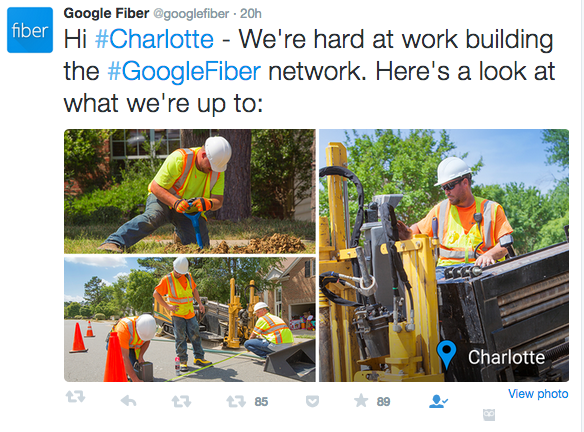Here's a summary of last week's industry news that I found worth noting, including a few storm clouds on the horizon:
Companies and Products
Advantech Wireless released a C-Band block up-converter for maritime applications, incorporating a high efficiency 300 watt GaN PA.
Cree is restructuring their LED business, responding to higher price erosion and factory underutilization.
Ericsson is terminating some 1,700 staff members as part of a previously announced cost reduction program. A total of 2,100 positions are being reduced; presumably some people in the positions being eliminated are moving to open positions in other areas.
Ericsson and Vodafone have implemented the first FDD/TDD carrier aggregation network using Band 3 (FDD) and Band 38 (TDD).
More than just replacing the magnetron with a solid-state PA, Freescale has introduced the concept of an intelligent solid-state oven, the core of a new cooking ecosystem.

MACOM is purchasing their Lowell fab and headquarters building from Cobham for $8.25 million. They have been leasing the building since this segment of MACOM was purchased by Gaas Labs in 2009.
Also, MACOM responded to SEC questions about the change in how distribution revenue is recognized (from sell through to sell in).
Skyworks plans to open a San Diego design center in July, focusing on 4G/5G protocols and IoT.
TRM Microwave announced the company has been certified as a woman-owned small business. This coincides with their 45th anniversary.
It didn't take long: Verizon completed the acquisition of AOL. It will be interesting to see what this network operator does with content.
Markets and Technology
Read this and smile. You've been there — still are, despite all the technical advances (2G, 3G, 4G). Cellular coverage remains hit or miss.
Small cell use cases continue to evolve. Nokia Networks finds that added capacity works well with short-lived events that draw huge crowds.
In a party-line vote, the FCC approved plan to subsidize broadband service for poor Americans. The subsidy is $9.25 per month.
Here's an interesting chart from the Electronic Frontier Foundation (EFF) that rates how well Internet companies protect users from government data requests.
In a blog post, Verizon discusses how information and communications technology (ICT) can help reduce global warming.
Google Fiber is beginning 1 Gbps FTTH network construction in Charlotte and The Triangle.

Why are all the successful tech start-ups American and not European? Does Europe need a Silicon Valley culture? The New York Times provides an interesting comparison of the two continents.
Here's another view of the difference between the U.S. and Europe: the European perspective that tech and telecom companies should be regulated based on services provided.
McKinsey published an analysis of the potential economic impact of the Internet of Things (IoT). Their estimate: $4 trillion to $11 trillion in 2025.
A dose of near-term reality: Argus Insights claims the demand for connected home products slowed dramatically during the first half of this year and continues to drop.
If your summer travels take you to the Taj Mahal, you'll find the historic site offers 30 minutes of free Wi-Fi to upload your selfies.
The Coming Week
Watch the negotiations between Greece, the European Central Bank, and European leaders. With a Greek default likely, Greek banks closing to stem withdrawals from panicked citizens, and the Greek government ratcheting up the tension, we could well be facing another period of global economic turbulence.
On that note, "keep calm and carry on."

